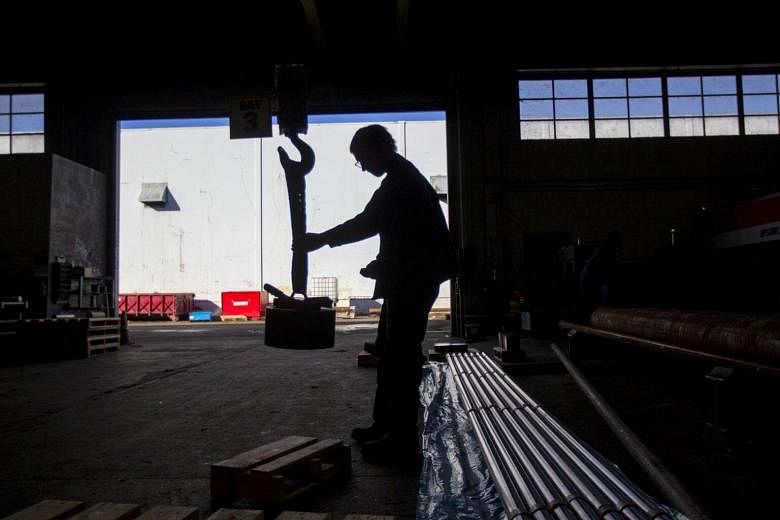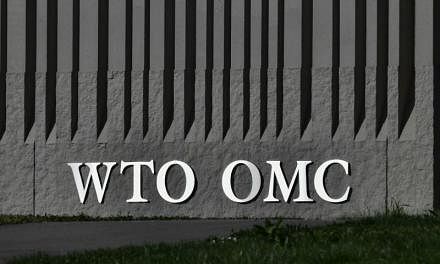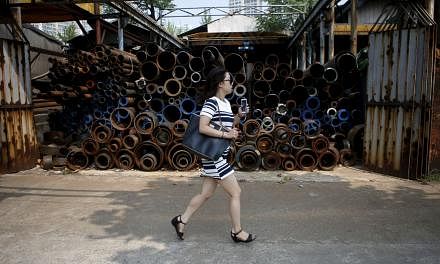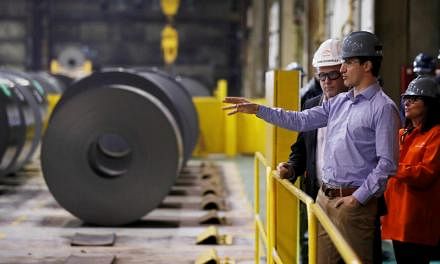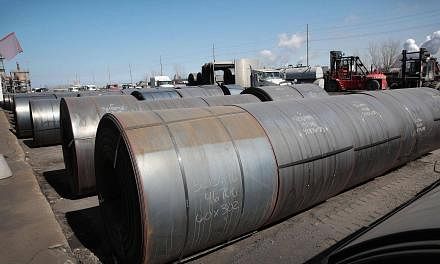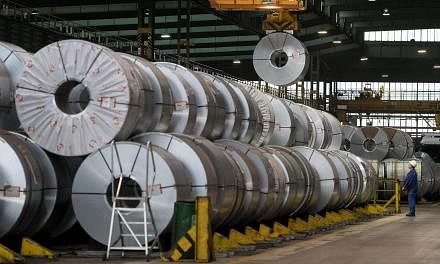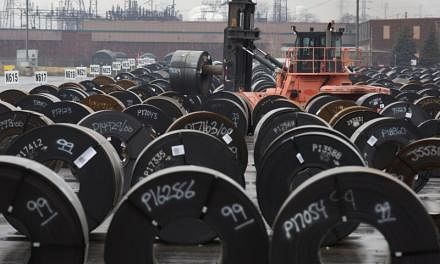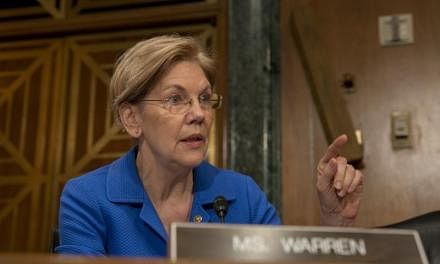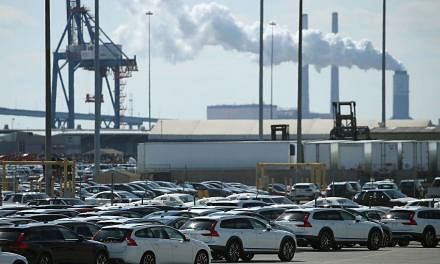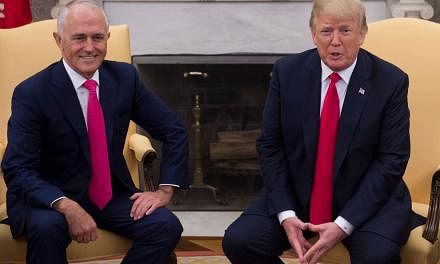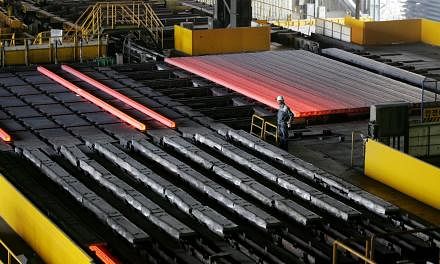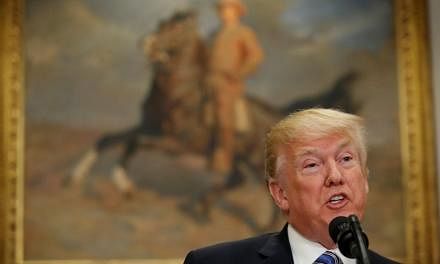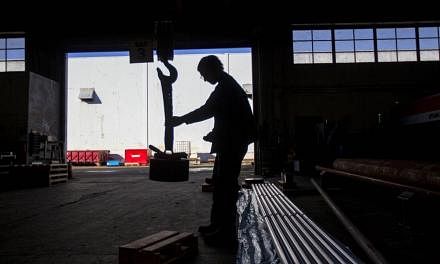CHICAGO (AFP) - From ketchup to automobiles and soya beans, United States President Donald Trump's contentious tariffs on steel and aluminium imports could bring unintended consequences for industries in the very places that handed him his election victory.
The tariffs of 25 per cent on imported steel and 10 per cent on aluminium will come into effect in 15 days, measures the White House says will help American industry recover from unfair trade practices.
But in Wisconsin, Minnesota, Michigan and other states where voters hoped Trump would employ business acumen to boost the economy and create more jobs, there were fears that the proposed tariffs could have the opposite effect.
"The worry is that this is a political response that is trying to help certain communities, but it may end up hurting them," analyst Joseph Parilla, of the non-partisan policy research group The Brookings Institution, told news agency Agence France-Presse.
"Rural areas, smaller towns, the type of communities that voted more for Trump, are extremely export-intensive," Parilla said, adding that exports are vulnerable to retaliatory tariffs by other countries.
To be sure, there was support for the measures in places with a direct connection to the production of steel and aluminium. In parts of Minnesota, for example, iron mining - which produces steel's key raw material - is a US$3 billion (S$3.9 billion) industry.
"The steel and aluminium sectors have been under attack by predatory trade practices," said Leo Gerard, president of United Steelworkers International.
"Our members have actively fought for action," he said.
But among those that use steel and aluminium to make other products, there were concerns about what could come next.
In Michigan, the auto industry was worried about rising costs at a time of slowing sales in the US market.
"Manufacturers are not prepared to absorb a sharp increase in the cost to build cars and trucks in America," warned Cody Lusk, chief of the American International Automobile Dealers Association, which represents US dealerships of foreign car brands.
Agriculture exporters in Minnesota and Wisconsin were also worried about retaliatory tariffs on the products they export, such as soya beans.
"We're very concerned about any ramifications of what might come of this, and how it might blow back on agriculture, particularly when we're at a situation right now with tough commodity prices anyway," Perry Aasness of the trade group Agrigrowth Council told Minnesota Public Radio.
In Wisconsin, Republican Governor Scott Walker - Trump's vanquished competitor for the party's presidential nomination - sounded the alarm by touring two manufacturing plants earlier this week.
To make his point, he stood in front of large barrel-shaped rolls of thin aluminium sheets at a manufacturing plant owned by industrial products maker Bemis.
That company uses the imported aluminium to make things such as individual ketchup packets.
"If (the Trump administration's) goals are protecting American jobs, this policy as they rolled it out will do the opposite, so I hope that they'll reconsider," Walker said on Tuesday.
The governor's office put out a list of other companies that could also be affected - from more expensive cans for beer producer MillerCoors to tariffs on exported motorcycles made by the iconic American brand Harley-Davidson.
"The practical application of the tariffs on steel and aluminium would lead to jobs being lost in Wisconsin and moved, not to other states, but to other countries," Walker said.
